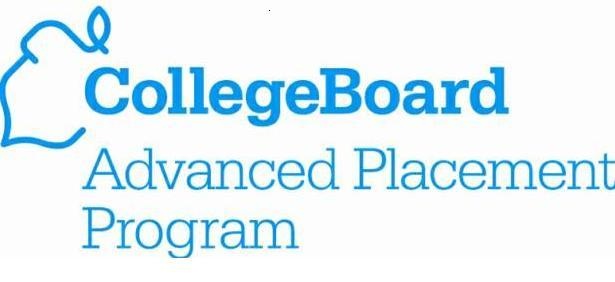Considering Taking AP? Here are Four Reasons Why It’s Worth It
March 9, 2020
Greenwood is one of the best schools in the area for AP courses, with a total of 15 AP classes in subjects like history, calculus, and physics offered on-site. Still, for incoming students, the idea of jumping into AP courses can be daunting. While it can be easy to focus on the perceived stress of AP courses, there are plenty of good reasons to take them that outweigh the negatives.
1. Passing the exam gives you college credit for a much cheaper price than you’d pay at college.
As of this year, AP exams are $94 (free for students on Free or Reduced Lunch). If you take the exam at the end of the year, you can earn college credit or even skip certain classes at college based on your score out of 5. This makes it possible to potentially save thousands of dollars on class costs.
Different colleges have different policies for what your scores will get you; for example, a 3 on an exam at Western will typically exempt you from an introductory course while Harvard only gives credit for 5s. If you know what college you plan on attending, you can check their score policies here by selecting “Find Your College.”
2. Getting A’s in AP classes raises your weighted GPA.
At Greenwood, the AP classes you take count as another letter grade on your weighted GPA–for example, a B in AP Chemistry is an A. This is how some students get 4.0+ weighted GPAs. If you’re trying to be at the top of your class rank, taking AP courses is essentially the only way to do it. It’s worth keeping in mind, though, that some colleges don’t accept weighted GPAs, so it’s important to try to get the best score you can in AP courses.
3. AP classes aren’t as hard as they might seem.
Some AP teachers will try to scare incoming students to weed out the ones who are uncertain about taking the class. There’s a reason they do this; AP classes are most productive when every student in the room is there with the intent of putting effort into the class. AP classes aren’t really any harder than normal classes, though–and in some respects, they’re even easier.
From my own experience, AP teachers tend to be much more lenient on tests and homework because they expect their students to be listening in class and occasionally studying on their own. In general, their goal is to prepare you for the exam, not to have you worrying over grades. For this reason, as long as AP teachers can see that the class is obviously putting in effort, grades usually aren’t a major concern, and classes tend to have a more relaxed structure than non-AP classes.
4. Passing AP exams is all about your approach.
Doing well in AP classes is almost completely about your approach. What you have to know for each course varies, but in general, passing the exam is about figuring out what the College Board wants from you and then doing exactly that. There’s a huge amount of resources available to help you determine what the Board is looking for.
Your teachers will usually give you formulas for written prompts, and review books (sold by companies like Kaplan or Barron’s) can help you go over content at the end of the year. You’ll still have to study for AP classes, probably more than you study for any non-AP class, but as long as you go into the class confident, willing to study, and looking for what the Board wants, you’ll do fine.
AP and Dual Credit: What’s the difference?
AP and Dual Credit are both courses that a student pays for to get college credit. There are two main differences between the two. The most important is that credits gained from an AP exam are generally transferable to most U.S. (and some international) colleges, while Dual Credit courses may be harder to transfer to schools besides WKU, Murray State, or SKYCTC, since the classes are directly offered through those schools.
The other main difference is that Dual Credit courses count for both high school and college credit. In other words, what you receive in a Dual Credit course is your grade both in high school and for that course in college, while you can choose whether to take an AP test at the end of a high school year for the possibility of getting college credit.
In addition, Dual Credit classes require a certain degree of responsibility. Many Dual Credit courses are online (with the exception of some like Statistics or Public Speaking, which are taught at Greenwood). In online courses, professors determine when assignments are due; for this reason, the amount of work expected in a DC course can vary significantly.
For example, a student may have a month to complete a folder of assignments (including a test) on their own time, or they may be given a window of time to complete one test per week. AP classes, on the other hand, are more structured and give more opportunities to ask questions.
Overall, AP classes are an extremely worthwhile experience that I recommend every interested student take. If you’re considering doing anything at Greenwood, whether it be clubs, classes or sports, choosing to go for it is the best way to get the most out of your high school experience.


